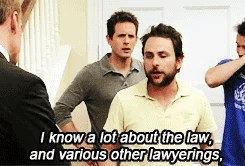Why is it hard to find a good lawyer (pt. 1)
Why some startups struggle finding quality legal help, even if they can afford it.
Anecdotally I hear about a lot of negative experiences with legal professionals. While I think in any services industry you will have a fair amount of bad matches (consumer + service provider pairs that don’t work for one reason or another) - I also think the legal industry suffers from a few unique challenges when it comes to seeking and finding qualified professionals to get the job done.
There aren’t many reliable signals of legal quality. As Clerky points out, it’s very tough to determine the legal quality of an online service or lawyer. A designer or engineer or marketing professional can share their portfolio; but a lawyer is prohibited from sharing work product as a result of their ethical obligation to confidentiality. On the flip side, the quality of a lawyer’s website or their friendliness over the phone has little bearing on the quality of their work.
Aggregated review sites don’t work as well for legal services. Just as consumers can use review sites like Yelp, Angi or Glassdoor to view indicators of quality for restaurants, service providers, or employers; consumers searching for legal help can find reviews of lawyers on legal-specific aggregator sites like avvo.com or legalmatch.com. However, the practice of aggregating reviews to indicate quality is flawed in a major way - aggregate ratings treat all reviews with equal weight. This should not be the case for legal search. Most of the value from a review lies not in the review itself, but in the data about the reviewer and their endorsement of that service provider. An aggregate rating washes data of the quality signals that should be important. In an ideal legal search experience, relevant reviews would be from consumers who had similar needs and similar work done by the service provider, and the rest of the data would be noise.
Objective indicators are not readily available. There’s a lot of grey in law. Consequently there’s a lot of grey in identifying good lawyers vs bad. Outside of referrals, identifying good lawyers is more of an art than a science. For most founders, it is practically impossible to determine legal quality from the work product alone; and oftentimes legal mistakes go undiscovered for long periods of time - hindering any potential for a fast feedback loop.
A note on “brand” as a quality signal. The traditional “brands” that signal quality in the legal space include law firms and alma-matters, typically known as a lawyers “pedigree”. I won’t dig too much into the value of brand as a signal, other than highlighting this: founders’ experiences will differ dramatically between lawyers with the same firm and with the same education, and relying on these signals often discounts the amazing work of lawyers from smaller firms / schools. A large majority of lawyers do not work in Big Law, and an increasing amount of lawyers are joining distributed or boutique firms or creating solo practices. Decentralization is bleeding into legal services and, over time, this shift should decrease the importance of branding as a signal of quality.
I’d love to hear your thoughts in the comments! Or shoot me an email at brian@heycounsel.com.
Stay lawyerly,
Brian






A predicate problem is simply answering the question of "what is a good lawyer?" and "what is good legal work?" I've heard clients who I really respect heap praise on lawyers who were solidly mediocre. And I've seen the opposite: good lawyers who aren't particularly appreciated. Sometimes the quality of the work is obscured in clients' minds by the quality of the outcome. Sometimes the client perceives things as "good" that may not be good – e.g., a lawyer who says "yes" when a prudent lawyer would find a way to say "no". Again, it goes back to not really having a reliable and objective measure for what makes a good lawyer or good legal work.